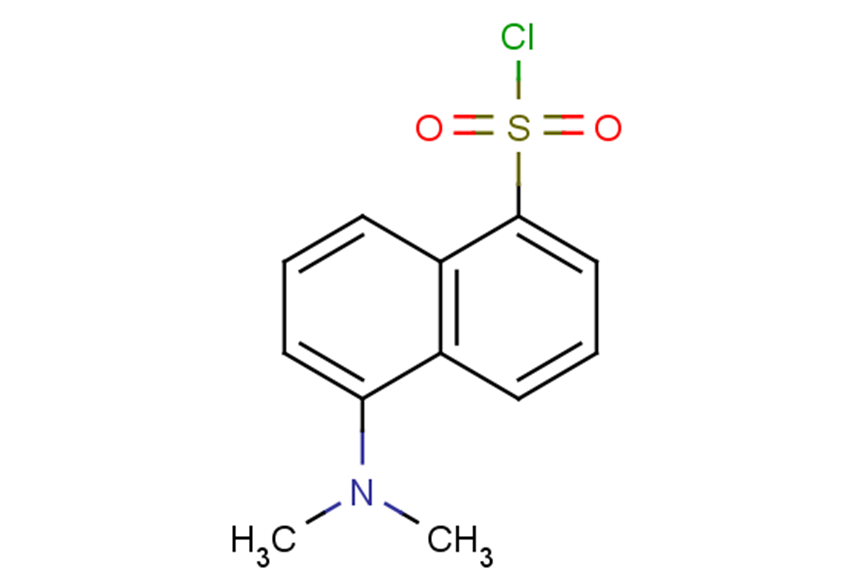
Dansyl chloride
CAS No. 605-65-2
Dansyl chloride( DNSCl )
Catalog No. M22498 CAS No. 605-65-2
Dansyl chloride reacts with primary amino groups in both aliphatic and aromatic amines to produce stable blue- or blue-green-fluorescent sulfonamide adducts. It is widely used to modify amino acids, specifically, protein sequencing and amino acid analysis.
Purity : >98% (HPLC)
 COA
COA
 Datasheet
Datasheet
 HNMR
HNMR
 HPLC
HPLC
 MSDS
MSDS
 Handing Instructions
Handing Instructions
| Size | Price / USD | Stock | Quantity |
| 1G | 29 | In Stock |


|
Biological Information
-
Product NameDansyl chloride
-
NoteResearch use only, not for human use.
-
Brief DescriptionDansyl chloride reacts with primary amino groups in both aliphatic and aromatic amines to produce stable blue- or blue-green-fluorescent sulfonamide adducts. It is widely used to modify amino acids, specifically, protein sequencing and amino acid analysis.
-
DescriptionDansyl chloride reacts with primary amino groups in both aliphatic and aromatic amines to produce stable blue- or blue-green-fluorescent sulfonamide adducts. It is widely used to modify amino acids, specifically, protein sequencing and amino acid analysis.
-
In Vitro——
-
In Vivo——
-
SynonymsDNSCl
-
PathwayOthers
-
TargetOther Targets
-
RecptorOthers
-
Research Area——
-
Indication——
Chemical Information
-
CAS Number605-65-2
-
Formula Weight269.75
-
Molecular FormulaC12H12ClNO2S
-
Purity>98% (HPLC)
-
SolubilityDMSO:6.67 mg/mL (24.73 mM; Need ultrasonic)
-
SMILESCN(C)c1cccc2c(cccc12)S(Cl)(=O)=O
-
Chemical Name——
Shipping & Storage Information
-
Storage(-20℃)
-
ShippingWith Ice Pack
-
Stability≥ 2 years
Reference
molnova catalog



related products
-
KSC-34
KSC-34 is a covalent modifier of protein disulfide isomerase A1 (PDIA1).KSC-34 is a selective inhibitor targeting the a-site of PDIA1.
-
(2R,3S)-3,7,4-Trihyd...
(2R)-3α,7,4'-Trihydroxy-5-methoxy-8-prenylflavanone is derived exclusively from the roots of Sophora flavescens.
-
Tyroserleutide
Tyroserleutide (YSL), isolated from the degradation products of porcine spleen, is a small molecular tripeptide which inhibits tumor growth both in vitro and in vivo.



 Cart
Cart
 sales@molnova.com
sales@molnova.com


